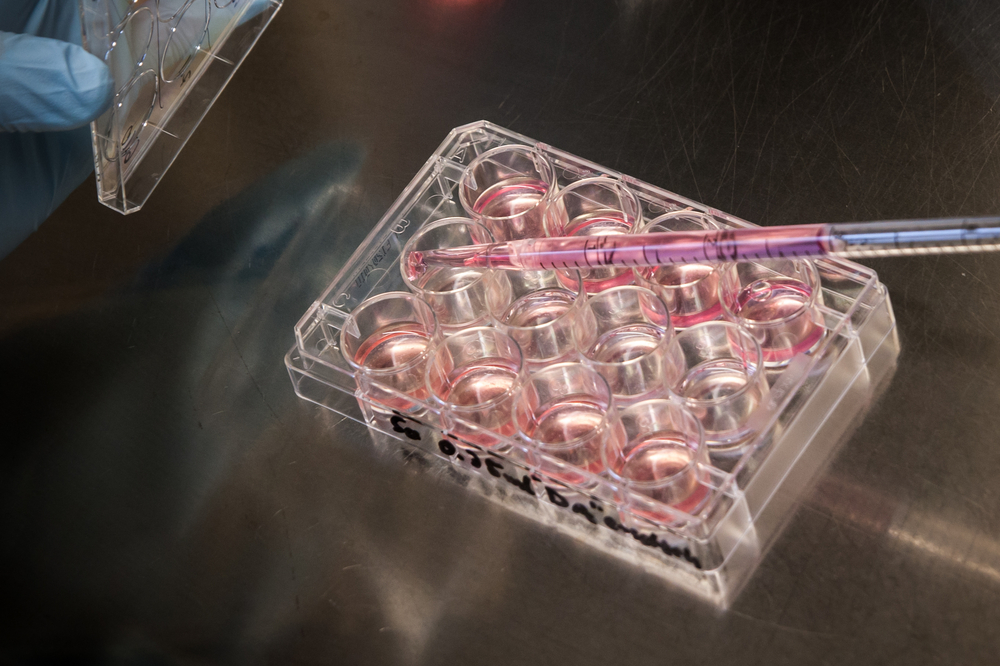
Developing new treatments for degenerative diseases, such as knee osteoarthritis, is vital to ensuring the quality of life of aging patients. Currently, there are not enough effective treatments that address the underlying causes of osteoarthritis. Stem cells are a viable candidate for treating knee osteoarthritis.
A study, Application of mesenchymal stem cell therapy for the treatment of osteoarthritis of the knee: A concise review, reviews the current research and clinical trials that investigated the use of stem cells for knee osteoarthritis. The study found that multiple types of stem cells have great promise in treating osteoarthritis.
The Results of the Study
The researchers first evaluated the properties of stem cells that make them ideal for treating knee osteoarthritis. The immunomodulatory effects of stem cells can help in the treatment of osteoarthritis. Stem cells can reduce local inflammation and pain in patients. Additionally, stem cells are able to encourage tissue and cell regeneration through paracrine mechanisms.
The study found 74 clinical studies that have been conducted about stem cell therapy for osteoarthritis. The study found that there were three main sources of stem cells that were used for treatment: bone marrow, adipose, and umbilical cord. Overall, the study found that each source of stem cells had the potential to replace traditional osteoarthritis therapies in the future. Let’s discuss each source of stem cells and what the researchers found.
 Bone Marrow Stem Cells
Bone Marrow Stem Cells
Bone marrow stem cells were the most commonly used source in the studies that were reviewed. Bone marrow stem cells are obtained from patients by extracting the bone marrow and then extracting the stem cells from the bone marrow. Centeno et al reported a case of severe knee osteoarthritis. The researchers injected the patient with bone marrow stem cells.
Six months after receiving the treatment, the patient had significant articular cartilage and meniscus growth. The patient also had an improved Range of Motion (ROM) score and the modified VAS score decreased. Other studies found that bone marrow stem cell injections also achieved similar results to the case study.
The study concluded that bone marrow-derived stem cells are safe and can be effective for improving knee osteoarthritis symptoms. However, the study noted that obtaining enough bone marrow stem cells can be difficult for treatment of osteoarthritis, and that as patients age, the differentiation abilities of bone marrow stem cells are reduced. These factors could influence the effectiveness of the stem cell treatment.
Adipose Stem Cells
Intra-articular injection of adipose-derived stem cells was also explored in various clinical studies. These stem cells are usually obtained by taking fat from the patient’s body and stem cells are extracted from the fat. One study found that an intra-articular injection of 100,000,000 adipose-derived stem cells significantly improved knee joint pain and function. The study also found that the patients did not experience any adverse events from the treatment.
The study also treated patients with various doses of adipose-derived stem cells. Patients in the medium dose group reported some improvements in symptoms. However, patients in the low dose group who received 10,000,000 stem cells, did not show any improvements based on the study indicators. This fact shows the potential importance of the number of stem cells that are used in the treatment.
The study stressed that more long-term studies with more patients are needed in order to confirm the effects of adipose-derived stem cells on knee osteoarthritis patients. The researchers found that adipose-derived stem cells typically have lower potential as compared to other sources of stem cells. These facts may push stem cell research towards other sources of stem cells.
 Umbilical Cord Stem cells
Umbilical Cord Stem cells
Umbilical cord stem cells have impressive properties that make them a great candidate for treating osteoarthritis patients. These stem cells are obtained from discarded umbilical cords or umbilical cord blood blanks. Multiple clinical trials have shown that umbilical cord stem cells are able to improve knee osteoarthritis patient outcomes.
These stem cells are able to improve joint function and quality of life of patients. The researchers found that in 2012, the Korean Food and Drug Administration approved a stem cell drug called Cartisem for the treatment of degenerative osteoarthritis and cartilage injury. More than 5,000 patients have been treated with the drug since it was approved and it has achieved a success rate of 97.67%.
Cartistem uses umbilical cords to obtain umbilical cord stem cells that are then implanted into the damaged cartilage. The stem cells are able to enhance the repair response of the damaged cartilage tissue. The researchers concluded that umbilical cord stem cells are going to be an important avenue for treating osteoarthritis in the future.

